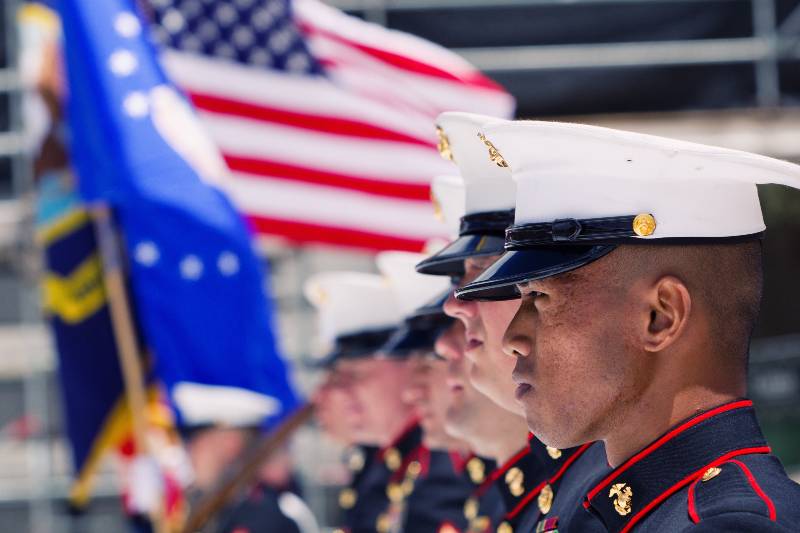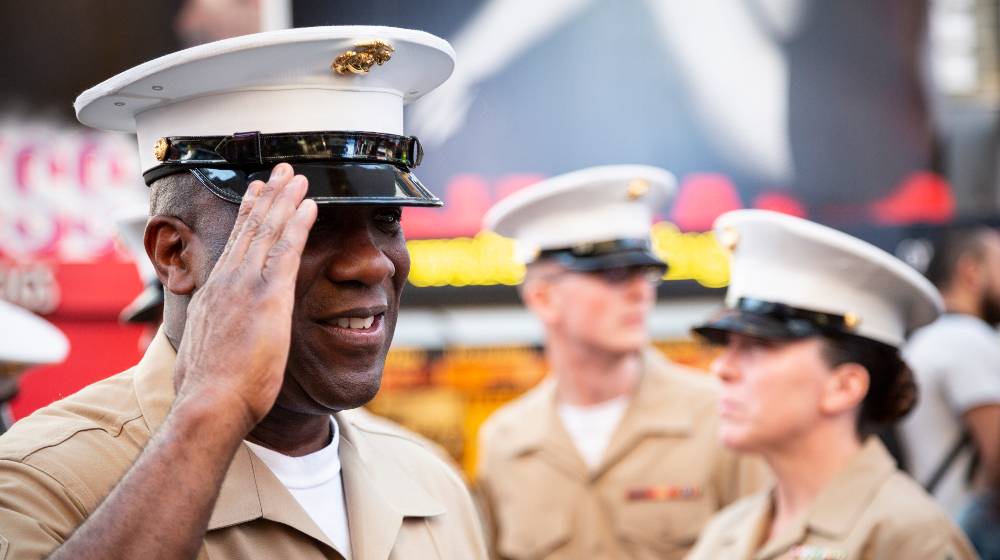The racism and hate displayed against black people and other minorities in the United States have come to the forefront as a huge problem for the country.
In the aftermath of the killing of George Floyd by a Minneapolis police officer, the call for racial equality has resonated with millions of people around the world.
Countless people have participated in peaceful protests throughout the country with a few of those protests turning into riots.
RELATED: Destroying History Won’t Eliminate Racism
Racism and Hate Should Not Be Part of the Military

It has been no secret that black men have been targets of police unfairly for decades. Although most police officers are undoubtedly good citizens who are trying to help people in need, there have been many cases where black people were treated unjustly by some police officers.
Too many innocent black people have died because they were suspected of wrongdoing simply because they were black and in the wrong place at the wrong time.
There have been cases of people who were tried and convicted even though they were innocent. Years later they may have been found to have been innocent.
Just as racism should not be a factor in the police forces throughout the country, the military should not allow for racism and hatred within the various branches of the military.
There have been too many cases of racism being allowed to hurt innocent people.
During World War II, Japanese Americans were considered to be non-citizens and enemy aliens although they had been born in the United States.
Most of them were incarcerated in what has come to be known as American concentration camps. Then when the government decided they could use those young men in the military, a segregated unit was established.
Most Japanese American young men served in the 442nd Regimental Combat Team/100th Battalion. Others, however, served in other American military units.
Those young people faced racism from their fellow military personnel even as they served their country.
There were other segregated units of the United States military as well, including the Native Americans and black people.
After World War II, President Harry S. Truman desegregated the military. Yet racism did not go away just as it has not been eradicated from the general population.
Dr. Martin Luther King, Jr. worked hard to try and eliminate the racism and hatred that exists in this country. He lost his life doing so.
There have been numerous others who have also tried to bring attention to racism and unjust treatment, especially to black people.
Two black athletes, John Carlos and Tommie Smith tried to do their part to stop racism when they stood on the podium during the 1968 Summer Olympics in Mexico City.
Little known is the story of the white Australian athlete, Peter Norman, who stood in solidarity with them even though it cost him dearly throughout his life.
Colin Kaepernick tried to make the public aware of the problems of racism when he took a knee at NFL games. He was severely criticized and lost his job because of it. People have tried for decades to bring an end to racism to no avail.
Military leaders now seem to be acknowledging the problems of racism throughout the nation.
Gen. Mark Milley, the Joint Chiefs of Staff chairman, has said that it was a mistake for him to accompany the group to a photo op when hundreds of peaceful protesters were punished with tear gas for trying to bring attention to the racism and police brutality which resulted in the death of yet another black man.
The military should not allow such racism to exist within their ranks. There have been too many incidents of racism within the military.
These people are all trying to be patriotic and serve their country to keep us all safe. They do not deserve to suffer from racism as they serve.

